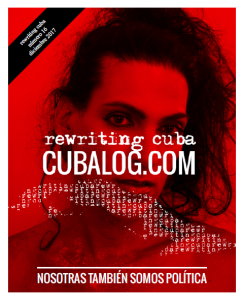The first round of the municipal elections in Cuba, which were held on November 26, has brought an interesting result. Not in regard to the selected delegates, since their own internal mechanisms prevent any significant change (the delegate lists are aligned with the Communist Party of Cuba which in turn will elect other Party officials and these will subsequently do so for other Party positions), but rather in regard to the attitude of the Cuban people towards the vote.

The worst participation rate in post-revolution electoral history was recorded on Sunday, November 26, 2017: more than 1,200,000 Cubans did not go to the polls. In addition, more than 300,000 blank votes were recorded, which are considered the protest vote, and there were also more than 300,000 null votes or invalid ballots.
In this context, we have asked ourselves if the disappointment with the system of Cuban government has something to do with the absence of women in their politics. We are not referring to the physical presence of women. Beyond quotas and slogans, a closer look reveals that the positions of real impact in the Party are occupied by men, and that the political system is the product of the imposition of an absolute patriarchal system that destroyed any small opening for feminism on the island after the revolution, and which has been dubbed “Machismo-Leninism”.
These elections are probably going to result in a man being in charge of the government who is not called Castro but, when will it be possible for a woman reach the presidency of Cuba?
You can read the magazine here

Leave a comment